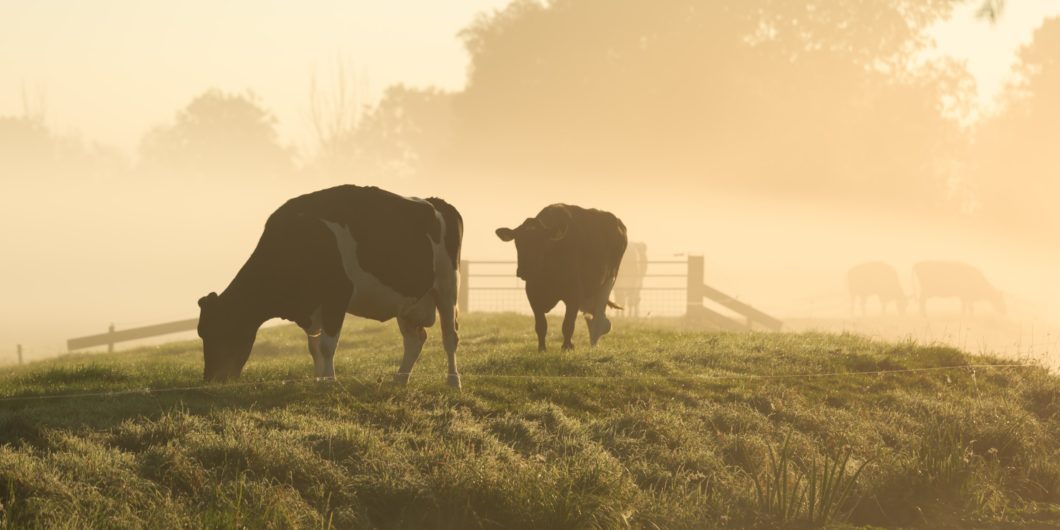Small is Beautiful—And Critical
Fickle, the hand of fate. Just weeks ago I was publicly bemoaning the plight of small-scale agriculture and the imminent demise of the family farm, while offering to sell my ranch—cheap. Now, in a turn of events we could not make up, let alone foresee, we are trying like mad to fulfill the sudden demand for local beef orders.
Our family operates a cattle ranch and small-scale (very small-scale) slaughter facility in southern Arizona. Twenty-five years ago, we stepped away from the ever-increasing consolidation in the meat industry, backed out of the agribusiness model, and chose the path less taken by directly marketing to the local-food cognoscenti. We didn’t want to become another producer-peon in the multinational corporate machinery that has made family-scale agriculture nothing more than a novelty item.
Now more than ever, as major meatpackers shut down amidst COVID-19 concerns, we are reminded why vibrant, prosperous, small-scale agriculture is so vital, not only to our national food supply, but to our national character. This crisis reinforces just how far we’ve strayed from republican ideals of frugal self-sufficiency, as we now live in the shadow of twin leviathans: a bloated bureaucracy that beggars belief and a crony elite that hides behind the skirts of the nanny-state.
The impending meat shortages at the grocery store are the predictable outcome of regulatory sclerosis—a dog’s breakfast of codes, ordinances, and ever-growing restrictions that pose a nearly impenetrable barrier to entry for those wanting to operate small, local meat processors. The local butcher is a rapidly extinguishing relic, and the reason is not lack of demand, but lack of supply. Unless you are JBS or Smithfield, with phalanxes of attorneys and lobbyists capable of securing preferential tax treatment, you will have a tough time penciling out a meat operation. Believe me.
When the dust settles, perhaps there will be the political will to deregulate an industry that badly needs it. . . . Perhaps we will even miraculously rediscover the republican virtues of keeping things small, diffuse, and decentralized.
Where we’re from, small meat plants used to be common: at least ten were within driving distance when I grew up. Now we’re down to three—two of those are for sale, and one is operated and subsidized by the local university. Since 1990 alone, the country has lost around a third of its slaughter facilities. More disturbing still, while federally-inspected USDA plants have decreased substantially, they have not suffered as badly as non-federal plants. Around 1,300 non-federal plants have winked out of existence in the last generation, and the trend has not wavered. Consolidation is the unmistakable and dangerous course.
The ironclad law of unintended consequences—along with a boundless faith in government oversight as an effective means to “protect” people from the food they eat—has now left us flat-footed and facing food shortages. Decades of ever-greater centralization have made our food system top-heavy and unstable. We’ve lost a robust, local, grassroots meat infrastructure to lean on when the big boys go down, and we’ve lost it because policy has made it nearly impossible for the diverse, dispersed production we needed to insulate us against the unforeseen.
The cattle industry in our part of the world is in a tailspin. Even before the pandemic, mutterings and complaints about “price-fixing” by the big packers had cow-calf producers up in arms. Antitrust lawsuits, reminiscent of the Beef Combines of Roosevelt’s era indicated something distinctly awry in the industry. What this latest catastrophe means for us is anyone’s guess. It’s reasonable to assume, however, more of the same: big packers have already been ordered back to work despite COVID concerns, and the price-fixing investigations will probably be conveniently shuffled under the rug. Corporate meat processors will probably survive and grow even larger when things return to normal.
There is, however, perhaps a chance to do things a little differently. The silver lining in this crisis is the recognition that the state-sponsored push toward bigger, better, and cheaper meat production came at a major cost. Perhaps customers will have rediscovered the value of buying local meat from people they can speak with, from systems they can relate to. When the dust settles, perhaps there will be the political will to deregulate an industry that badly needs it. Perhaps a less burdensome regulatory environment would entice a new generation to reinvent small-scale, locally produced, locally processed meats. Perhaps we will even miraculously rediscover the republican virtues of keeping things small, diffuse, and decentralized. Time will tell.



